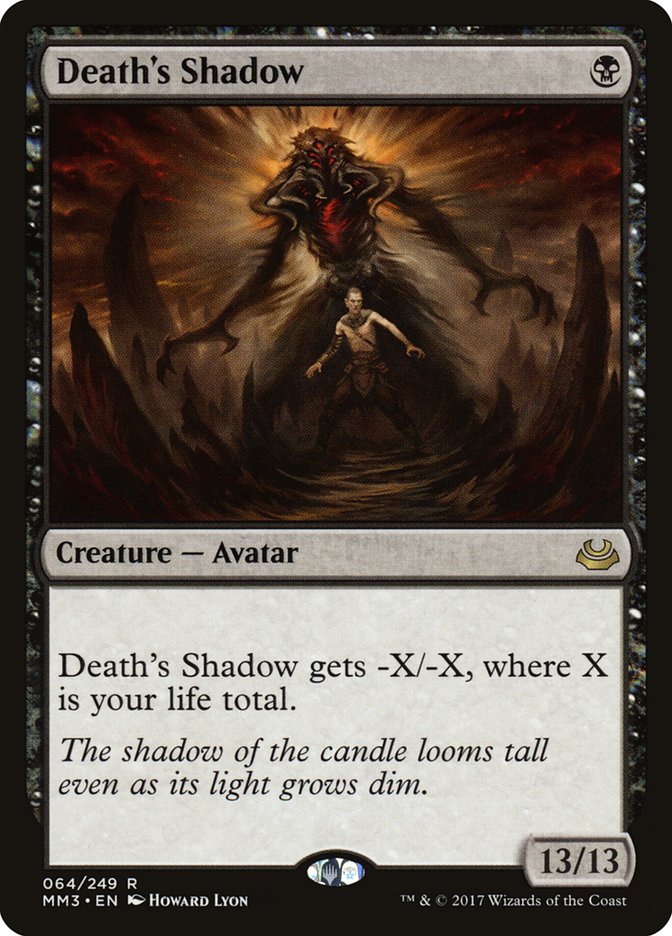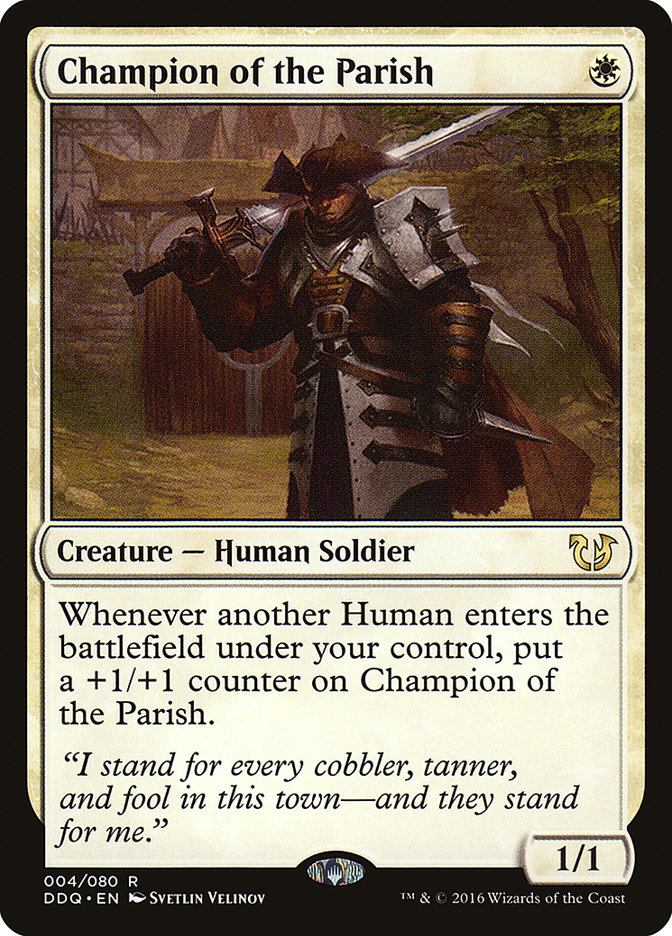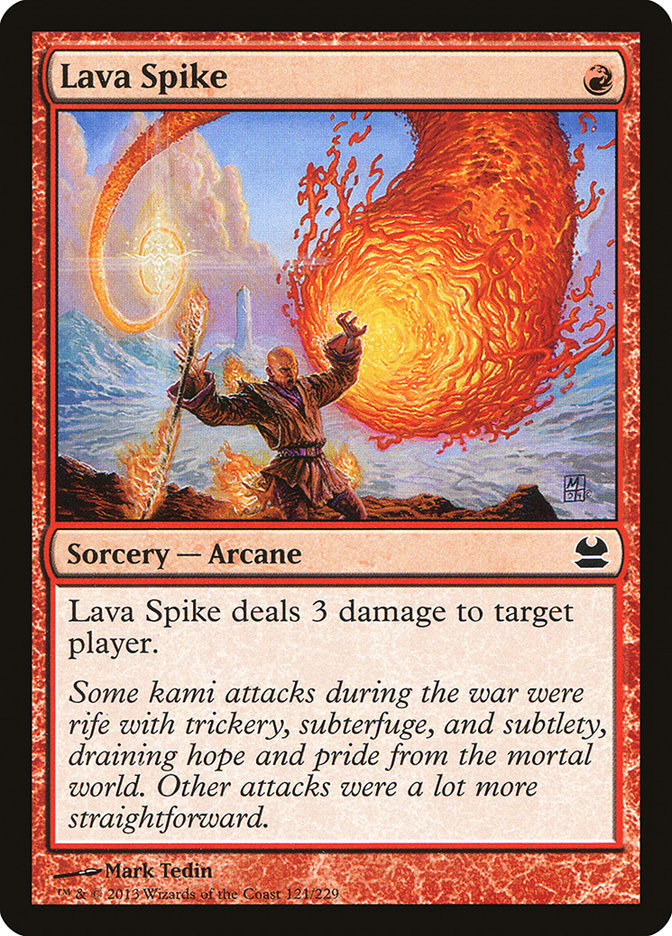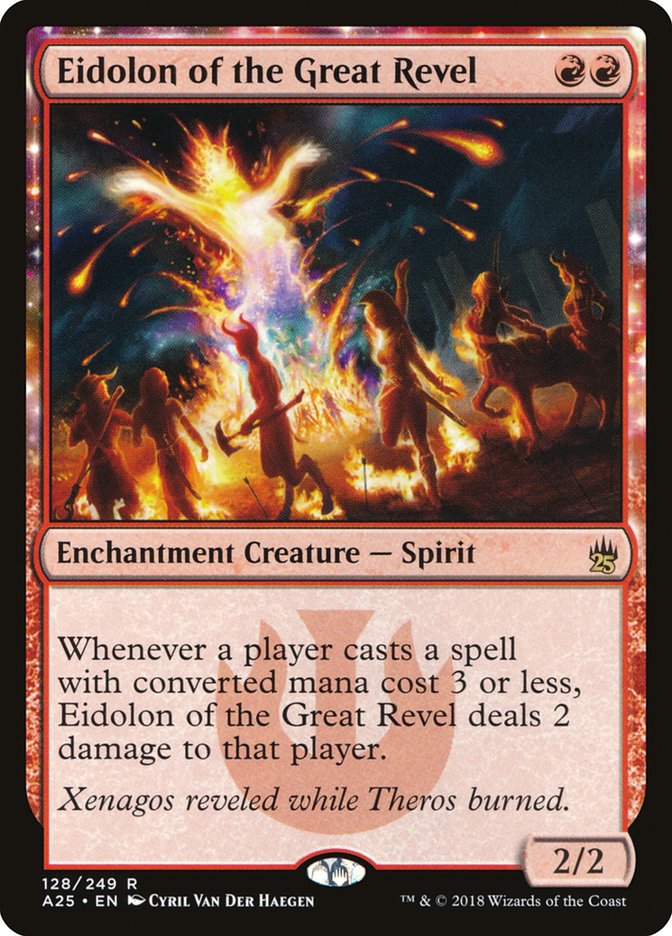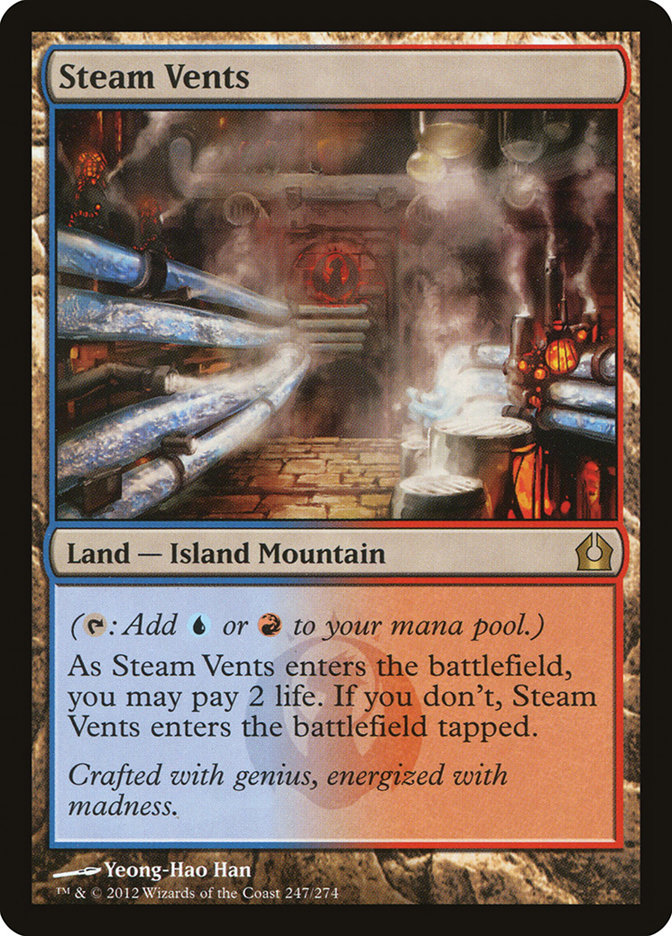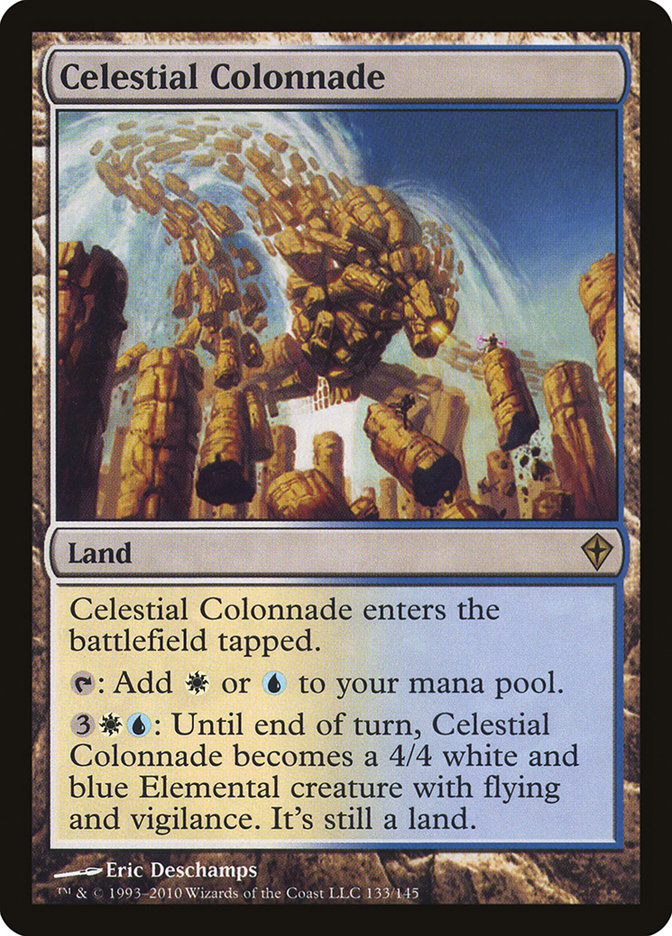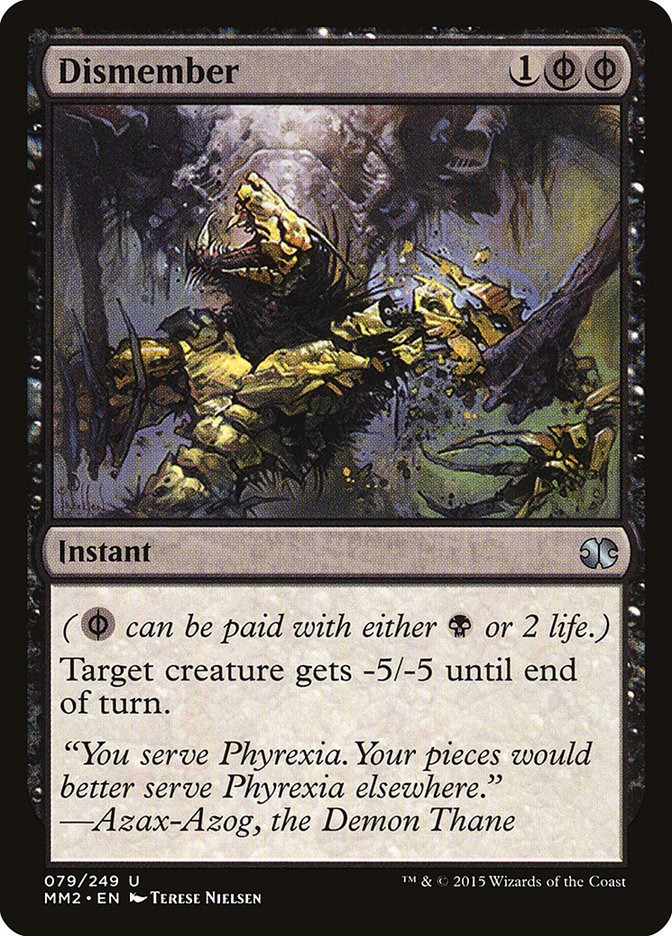Last weekend I played in
StarCityGames.com Regional Championship
in Raleigh, North Carolina. It was probably the most fun I’ve had at a
tournament in a minute. I feel very lucky to have the friends I have made
through Magic, and this tournament was full of awesome moments with a ton
of my friends, both old and new.
I was able to catch up with my old friend and actual nicest man in the
world, Cameron Barksdale, who ended up splitting the finals with another good friend of mine Dalton Ozmun, who seems to have just been
crushing life lately. Kat Light and Ben Regan came down for the Regional Championship after
Pro Tour Dominaria, and they’re always a delight to hang out with.
I got caught in the rain mid-tournament with my lovely girlfriend (and
Valakut genius), Becky Adlman, after we set out on an ill-conceived journey
for ice cream and had to play the next round completely soaking wet, which
was awesome. I got to watch Matt Wright take down yet another Standard PPTQ
as he masterfully piloted his U/W Control deck through the tournament.
These are the things that make tournaments worth going to for me. Results
come and go, but your results in the tournament should never define how
much enjoyment you’re having at the event. This is part of why I hate how
“How are you doing?” has the underlying meaning of “What’s your record in
the event?” and how that’s all anyone seems to care to ask me at events. I
went a medium 6-3 at my Regional Championship, but I felt amazing the entire time, simply
because of how much fun I was having with the people there.
I decided to play Grixis Death’s Shadow, to a lot of people’s surprise. A
lot of people I talked to expected me to play Humans, which is
understandable, but I felt that playing Grixis Death’s Shadow was an
excellent choice for me personally. Reid Duke recently wrote an article
where he talked about the dangers of both too little and too much
information. He talked about how knowing too much about a particular deck
can be dangerous, because you start leaning too much on past experiences
and just play on autopilot.
When I first started playing Humans, I was out to prove that it was a
legitimate archetype. I was hyper focused in all my matches. I focused on
every decision and every line, and as a result I think that I was playing
the best I ever have. I easily won the first three tournaments that I
played with Humans, which included an Open, a Regional Championship, and an
Invitational Qualifier. I’m sure this was due to a lot of factors. It was
an under the radar Tier 0 deck that no one was prepared for yet, and I was
focused in every match. But it got to the point where I started losing more
and more playing the deck. People were more prepared for it, but I could
also tell that I was just playing worse. My mulligan decisions became loose
because I was overconfident that the deck would be able to “get there.”
I just got sloppy.
So, after I figured out what was happening, I decided that I wanted to
challenge myself by playing a deck that was going to require all my
attention. Grixis Death’s Shadow was the perfect choice for this. The deck
is like a scalpel. It has the tools to dissect a game with precision, but
any small mistake in sequencing or decision making can mean you lose on the
spot. That was exactly what I was looking for. I knew it would bring out
the side of me that is very focused and can expertly navigate through a
match.
My decision to play Grixis Death’s Shadow over Humans was a personal one
and not really one that I recommend to other people. I think that Humans is
simply a more powerful archetype in Modern, but I think I was rewarded with
my decision to switch because playing Grixis Death’s Shadow at my Regional Championship
was an amazing learning experience.
I hope to share some of those learning
experiences with everyone here, so that maybe some of my readers can see
how I digest information at tournaments and that they might be able to
apply some of the same thoughts to their next tournament.
Mistakes happen all the time in Magic. Sometimes we’re lucky enough to
notice our own mistakes so that we can try to analyze and learn from these
mistakes. Grixis Death’s Shadow is a deck where the mistakes that you make
are particularly punishing, so I think it’s one of the best decks to play
if you want to try and identify the mistakes that you’re making in matches
so that you can study them.
The Regional Championship was a good tournament for me because for each mistake that I made
and noticed, I was appropriately punished and I lost the match because of
it. I’m sure this punishment helped me notice the mistake and I should also
try to notice the mistakes that I make in matches that I won, but it’s also
good to use loses as an opportunity to try look back and notice when you
may have made these mistakes.
The first big mistake that I recognized that I made was against Burn. The
Burn versus Grixis Death’s Shadow matchup is particularly interesting
because I believe it’s very skill-intensive. Mistakes made by either player
can be very punishing, especially for the Shadow player. My opponent was on
the play, so I was lucky enough to be able to know what my opponent was on
before I had to make any decisions. With Shadow this can be very important,
because managing your life total is something crucial to get right, and you
must start thinking about how you want to do that on Turn 1 when you play
your first spell.
Part of the decisions that go into managing your life total are what lands
you want to fetch out. Typically against Burn you want to do what you can
to preserve your life total, especially under the aggressive draws that
start with Goblin Guide, which is what my opponent had. So sometimes you
want fetch out a basic land to help with this. In this game, I decided to
fetch out Steam Vents and Swamp as my only two lands, because it fit with
the first couple of spells I wanted to cast in the first two turns. But the
thing I failed to realize was that my hand was primarily red and blue
spells, so the Swamp I fetched ended up meaning that I was actually only
casting one spell a turn, which is a nightmare against a deck like Burn. I
should have just taken the extra damage to ensure that I could cast two
spells per turn, and I’m sure I would have been able to win that game.
So, let’s take a step back and see what I can learn from this mistake. I’ve
always said that the mistakes that you make aren’t really the incorrect
actions that you take, but in fact the poor thought processes that lead to
these incorrect actions. In this game, I was too focused on the first two
turns of the game, and I didn’t take a step back and look at all the cards
in my hand to realize that to cast two spells a turn for the rest of the
game, I needed two blue sources. Had I been able to identify this, I’m sure
that I would be able to figure out the correct two lands to fetch out.
What can I do better next time? I need to make sure that when fetching out
lands that I not only pay attention to what I need in the moment, but also
consider what my future turns will look like, and what my mana needs to
look like to make sure I can cast the spells I need to cast, when I need to
cast them.
The second mistake that I recognized that I made was against U/W Control. I
won Game 1 and was in complete control through the entire second game. My
hand was stacked and I had multiple discard spells throughout the match, so
I knew exactly what my opponent had access to. This is an awesome
feeling and one that happens frequently with Grixis Death’s Shadow. The
game came down to a point where I had put myself to a relatively low life
total of six, but my opponent had no cards in hand. He had a Celestial
Colonnade and four other lands, but I had a Dismember to answer it and I
was clocking him with a few Lingering Souls.
He drew an untapped land for turn and went to attack with his Celestial
Colonnade. I had two untapped lands and a fetchland available. I decided to
not fetch because I knew that I had just scryed a Death’s Shadow to the top
of my library which would present lethal the turn after I played it, so I
paid two life down to four to kill the Colonnade. I untapped, played the
Death’s Shadow, attacked with my Lingering Souls, and passed the turn back.
That’s when I noticed… his second Celestial Colonnade.
I had just put myself in a position where I was dead to an untapped land
off the top in a game where I should have had zero chance to lose. Justice
was served, and my opponent ripped a Plains to kill me. I could have done
anything to avoid this, but I simply threw away the game.
What went wrong in my thought process? One thing that threw me off was that
the second Celestial Colonnade was a different art than the first, but
that’s not really a good excuse. I just simply missed it. In our minds, we
keep a running tally of all the things in the game that we need to make
sure to keep track of. Creature-lands are definitely one of those things,
and while I was able to keep track of the one that I knew about, the second
one was lost to me.
Something that I know very well about myself is that I suffer from tunnel
vision. I tend to home in closely on the things that I’m paying attention
to, but I’m also good at tuning out everything in my peripheral vision.
This can be a good thing at times, because I’m good at processing the
information that I observe, but I’m also not observing as much as I could.
Missing the Celestial Colonnade was a clear example of this. I’m confident
that had I noticed the Colonnade that I would have been able to sculpt a
plan that could beat an untapped land off the top from my opponent.
So, what can I do better in the future? In games where I feel very far
ahead, I need to make it even more of a priority to stop and check for
things that I may be missing. When the games are close or if I feel behind,
I’m going to naturally be paying attention to as many details as I can, but
when I’m ahead it’s more likely that I’m going to miss something like this
because I may not be as focused as I should be.
You’ll notice that in both scenarios that I went over, I made sure to focus
in on the specific thought processes that lead to the mistakes that I made,
and then tried to come up with a way for me to think about things better in
the future. I think this is something that everyone should try to do to
best learn from their mistakes and play better moving forward. It’s best to
try to do this immediately after the match in which the mistake happened so
that your thought process is still fresh on your mind.
I think that it’s important to make the distinction between focusing on the
thought process leading up to the decisions and the specific decisions
themselves. If you only focus on the specific actions that you take that
were mistakes, such as putting yourself to four life with a Celestial
Colonnade out or fetching out the wrong basic land against Burn, you won’t
be as well equipped for the other new and unique scenarios that you will
certainly come across in the future. But if you focus more on the thought
process that leads to making these mistakes, like missing small details
while ahead or making sure that your lands will support playing all of your
spells in the future, you will be able to make these unique decisions
better in the future.


